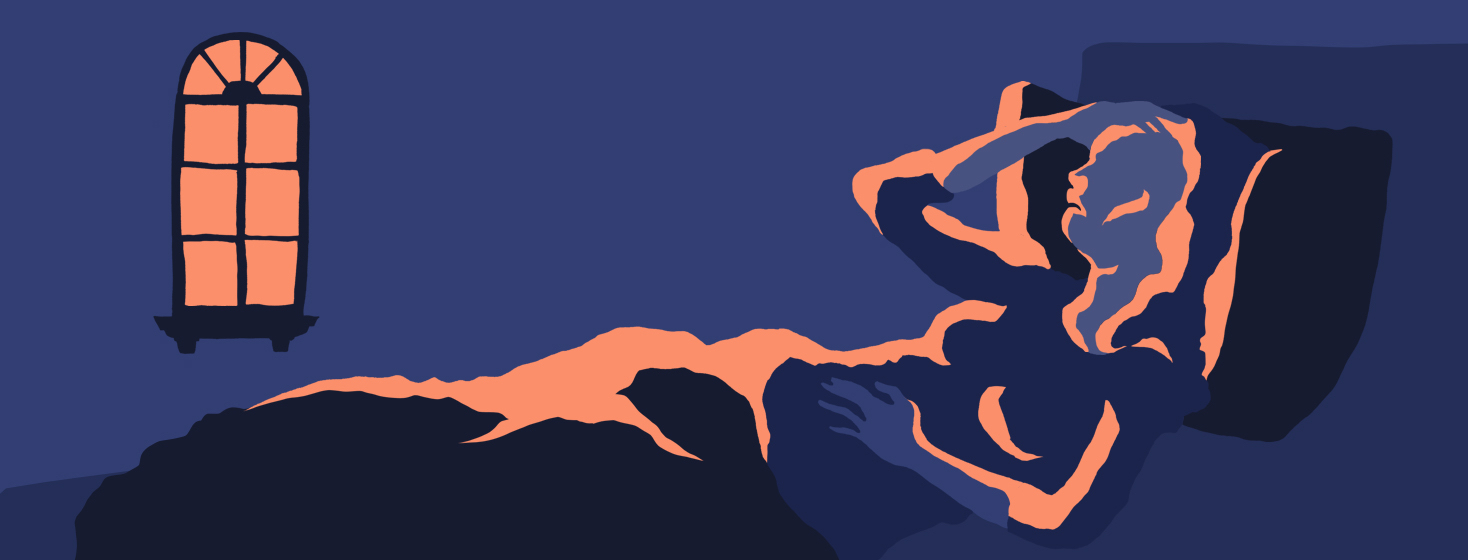Migraines, Sleep Loss, and Sleep Apnea – Understanding the Link
Back when I was diagnosed with sleep apnea, I never made a connection to my migraines. I always treated them as 2 separate conditions that didn’t affect each other. I was so wrong. Now, I understand there is a link between migraines and sleep apnea.
The link between migraines and sleep apnea
I went for years without using a continuous positive airway pressure (CPAP) machine and my migraines were almost daily. When I started using my CPAP again, I started to notice a pattern in my apnea numbers on the myAir app and my migraines. For me, there is a direct correlation between my insomnia, my sleep apnea, and my migraines.
Even while using my CPAP, if it leaks more or I have more incidents throughout the night, I know that I will have a headache in the morning.
What is the connection between migraines and sleep loss?
Insomnia makes using my CPAP so much harder. When I have a migraine it’s hard for me to use my CPAP because of the stabbing pain and pressure I feel in my head. Then putting on the CPAP mask is almost impossible in the midst of a migraine.
However, it starts a vicious cycle if I don’t use my machine because I have a migraine. As soon as I go to sleep, I wake up in the middle of the night with a worse migraine. If I happen to make it through the night, as soon as I open my eyes it’s an intense migraine.
Sometimes the migraines are so bad I can go 24 hours plus without sleeping. Sleep deprivation makes the migraine worse as well. It feels like someone is dancing on my brain with football cleats on. When this cycle starts, it doesn’t end until I either go to the emergency room or into the infusion center. Here, I will need to get a migraine cocktail via infusion that has allergy meds and magnesium.
The impact of sleep deprivation on health and wellness
When I was diagnosed with fibromyalgia a few years ago, I was shocked when the first thing my dermatologist said was that I need to sleep. It was time to figure out a way to sleep and get back on my CPAP.
He explained that when I didn't sleep and wasn’t breathing at night, my body could never recharge. So, the only way to start to deal with fibromyalgia is to get a healthy relationship with sleep because it affects every aspect of my body.
In getting better sleep, he checked my blood to find out that I was anemic and had low vitamin D. He got me referred for iron infusions and started me taking D3 with K (because it’s better absorbed that way).
How to improve your sleeping habits to reduce migraine pain
Routines and sleep habits
One of the hardest things I had to do was establish sleep habits and routines. No matter what else I had or wanted to do, at 9:30 PM I took my medications and sleep supplements and cut off the TV. Monday through Friday, I turn the computer off by 10:30 and I’m in bed by 11:30.
Having insomnia, if I don’t fall asleep by the time my 1-hour sleep meditation is off, I get up and do something outside of the bed like read a book. I try not to pick up my phone or turn the tv on because of the blue light.
Monitor coffee
I also stopped drinking coffee or caffeinated beverages after 2 PM because of its effect on my sleep. I can’t go without it because I get migraines when I try to stop caffeine altogether, it affects my ability to sleep as well.
Natural Remedies
I didn’t realize how important magnesium is to your entire body. One of the first natural supplements my doctor recommended was magnesium. I now take Pure Healthy Sleep – a sleep supplement packet that includes magnesium. It helps me feel more relaxed before bedtime.
I also incorporate turmeric supplements into my routine. This has helped with overall inflammation with fibromyalgia and migraines which makes it easier to sleep with a little less pain.
Migraine caps
I also have a hot/cold cranial migraine cap that you put in the freezer or microwave. It wraps around your eyes and the top of your head to help eliminate pain. When I’ve got a migraine at night, I try to take something and use the head wrap before I lay down.
Hydration
Dehydration is another thing that affects my migraines. So, I drink at least half a gallon of plain or fruit-infused water throughout the day. I also drink coconut water because it’s excellent for hydration and is something with a little more flavor than water.
Understanding the link between chronic pain and migraines
It took me a while to understand that sleep, pain, and migraines are directly correlated. How I sleep – the quality, the events per hour, the amount, and sleep interruptions – all have an impact on my migraines. Even though my migraines don’t have an aurora or an apparent trigger, I very closely monitor my sleep and use good sleep habits as a first defense in preventing migraines.
Do you also suffer from migraines? Please share a comment.

Join the conversation